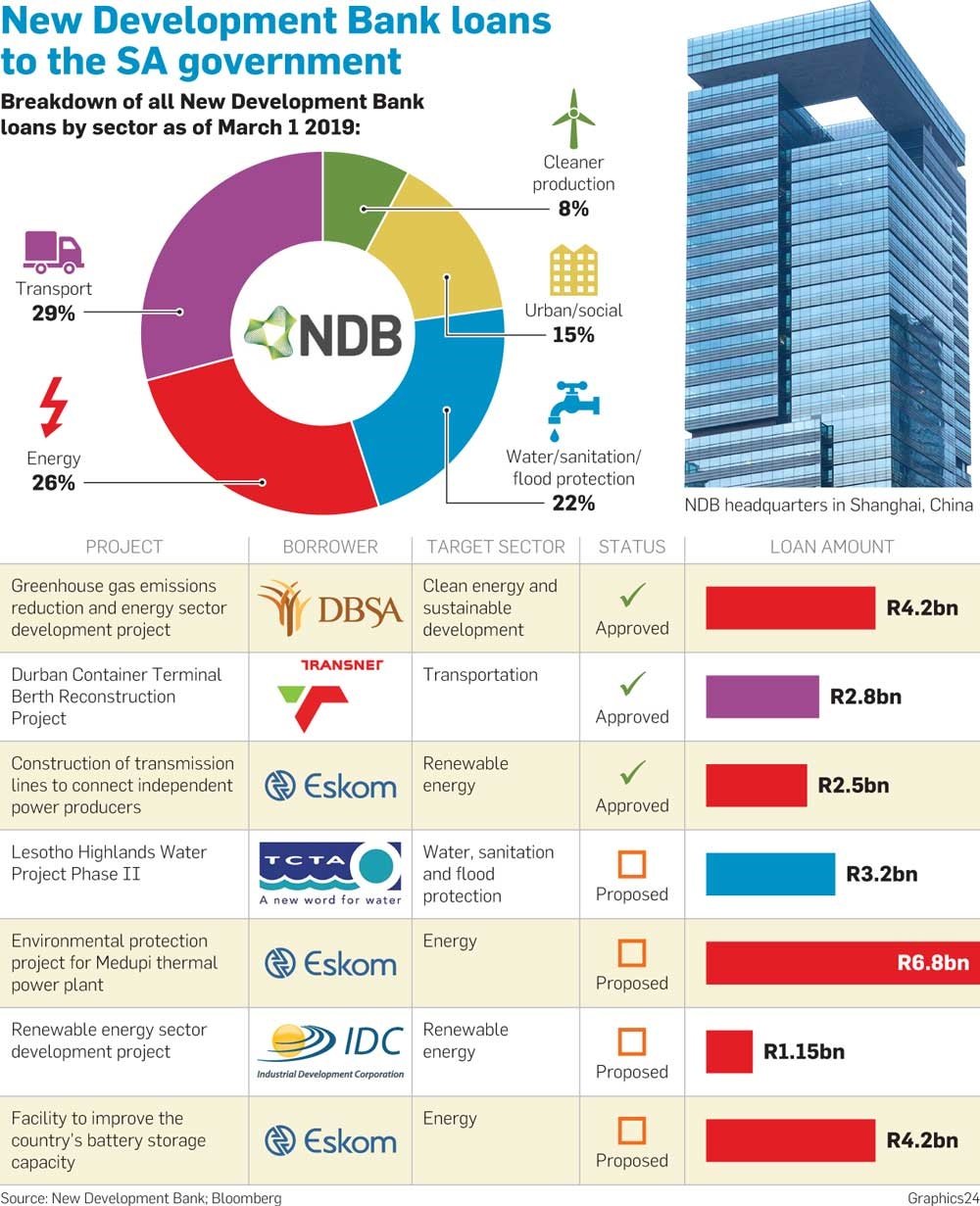
The New Development Bank (NDB) will host its 4th Annual Meeting from 31 March to 2 April at the Cape Town International Convention Centre, in Cape Town.
With this upcoming general meeting being the fourth one, among the questions being asked is: “Will the NDB live up to its promises?”
The NDB was founded in July 2014 at the 5th Brics summit in Fortaleza, Brazil and became operational in 2016.
In South Africa, the NDB opened an African Regional Center in Johannesburg two year ago, and plans are in place to set up the Americas Regional office in Sao Paolo, Brazil.
By the end of 2018, the bank approved 30 infrastructure projects with the total lending standing at 8 billion USD.
Looking at the genesis of the NDB and its founding principles agreement plan for 2017–2021, it was stated that the bank will mobilise resources for infrastructure and sustainable development projects in Brics and other emerging economies and developing countries, completing the existing efforts of multilateral and regional financial institutions for global growth and development.
Further, the new projects and instruments will drive sustainable infrastructure development as it is at the core of NDB’s operational strategy.
The annual general meeting will be an opportunity to review whether the NDB has been able to mainstream the principles and strategic objectives in its policies and projects.
Civil society groups, who have engaged with the NDB since the start of its operations in 2016, have voiced concerns regarding the way in which policies have been applied and implemented on projects.
Other issues raised have been about the controversial financing of projects such as Eskom and Transnet.
Less than 2 weeks ago, the NDB announced its plans to lend as much as R11.2 billion to Eskom for infrastructure projects this year as the distressed power utility struggles to keep power supply going.
The NDB also approved funding valued at R28 billion to Transnet related to the Durban port expansion project in July 2081.
Not enough attention has been given to South Durban communities who have expressed environmental and social concerns, including the lack of consultation with affected communities.
When we look at actual projects which are being financed, in South Africa for instance, it is difficult to understand how projects contribute to inclusive, sustainable development.
Eskom and Transnet have been undertaking similar projects with finance received from other development banks.
So, what would be different or new about the NDB?
In order for the NDB to truly support sustainable development, which is central to the NDB’s mandate, the NDB must be inclusive of community voices, especially women, and have safeguards and be accountable and transparent.
While the NDB claims to focus on the economy, environment and society (people) aspects, the NDB has yet to demonstrate appropriate levels of transparency and accountability.
A main concern by civil society has been the rather opaque approach in which projects have been identified and approved.
Over the 3 years of its operations, the NDB has not made available project information to the public nor have they developed a clear process for public consultations in any of the Brics countries.
In its ambition to be lean and green, the NDB seeks to fast-track the project approval timeframe to 6 months.
By doing so, the NDB sidesteps many critical areas including public consultation throughout the project cycle of their investments.
Prioritising gender and women’s rights in its investments is also critical for promoting more effective and sustainable economic development.
Towards this end, the NDB needs to integrate a more gender inclusive and gender responsive strategy to all their structure and operations, and to develop a gender policy.
The NDB offers the African continent promise of a new way of working that is transformative, inclusive and participatory.
But it must now begin to work in this way in order to live up to its name and show that it is truly an alternative to the older traditional development banks.
. Buenaventura Goldman is project leader at Oxfam South Africa; Tsegay is senior research & monitoring specialist of African Monitor




 Publications
Publications
 Partners
Partners








